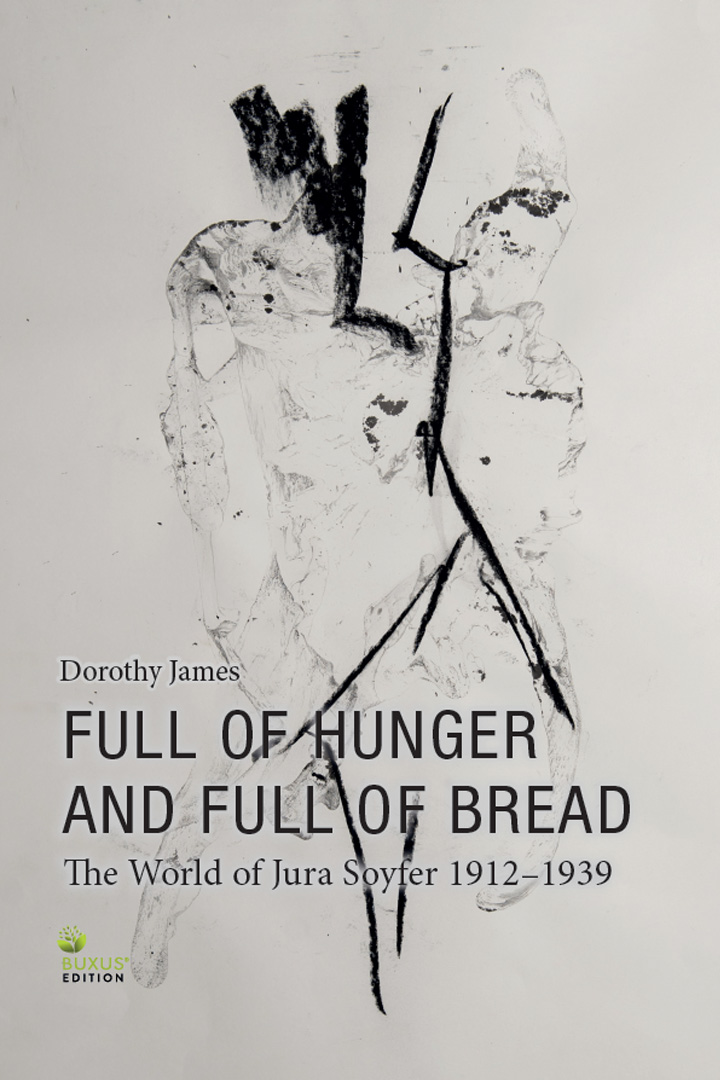
Jura Soyfer’s family fled from Ukraine to Vienna in 1920, where Jura attended high school and joined the Socialist Association of Secondary School Students. Early on, he began to write, composed poems and plays, wrote satirical texts, became a member of the Political Cabaret of the Social Democratic Party, and later a resident playwright for various basement theaters in Vienna.
Fritz Bauer Library, edited by Irmtrud Wojak, vol. 1.
Co-editor Ben Miller.
The World of Jura Soyfer
Disappointed by the inaction of the vacillating Social Democratic leadership, he joined the Communist Underground after the failure of the 1934 February uprising. His unfinished novel “So starb eine Partei” (“Thus Died a Party”) documents his courageous decision to take an active part in the political resistance against (Austro-)fascism. Jura Soyfer wrote the famous “Dachau Song.” It was to be his last act of resistance; his brave young life came to an end in the Buchenwald concentration camp.
Dorothy James (New York), literary scholar and writer, tells a vivid and deeply discerning story of Jura Soyfer’s resistance and struggle for survival.
JURA SOYFER, 1912–1939
“I am very, very dissatisfied with myself.”
Voice of Jura Soyfer, August 8, 1932. Not quite twenty years old, he is writing from Berlin to his girlfriend, Marika, in Vienna. Hetries to explain to her:
“I always have the feeling that I am running alongside the stream of events when I ought to be swimming in it, that I am separated from it by a stupid hedge. Every day a lost opportunity.”
What is this young Austrian doing in Berlin just months before Hitler comes to power there?
* * *
Jura was registered as a student at the University of Vienna before he set off on his hitch-hiking trip across Austria and through Germany to Berlin, a self-appointed reporter for the Austrian Arbeiter-Zeitung (Workers’ Newspaper). This well-regarded and widely read Social Democratic daily paper had already published many of the satirical, political poems that he, a prodigious writer, had been turning out at speed since his schooldays in Vienna. He hoped they would now publish his first- hand account of what he saw and experienced in Germany. Ostensibly a student of German and history, he had in his first year at the university spent less time on his studies than on intense political argument and action, on writing verse for the socialist press, on collaborating with like-minded activists on texts for political cabaret. Now away from Vienna for a short time, he had reached his destination in Berlin in what turned out to be the last months of the Weimar Republic.
We know from his letters to Marika that this young would-be professional journalist talked to many people on his journey, Nazis and Communists as well as Social Democrats—young intellectuals from circles like his own in Vienna and older seasoned working-class party stalwarts; he spent time in archives accumulating facts and figures, and all the time he kept writing, urgently aware that the descent of Germany into totalitarian fascism was sounding the death knell of his own Republic of Austria. Making his way across Germany on a shoe-string, staying overnight with contacts made through his political con- nections, he had seen for himself the brutality of the Nazi street armies and the increasingly desperate retaliation of the organized but divided forces of their working-class opponents. He had heard Adolf Hitler speak at a rally in Braunschweig, “flabbergasted,” as he put it, “at the mindlessness and brutality of this mass-magician.”
The stream of events in Germany was flowing wildly, rapidly, inexorably, in that August in Berlin when he felt so useless, an onlooker on the other side of a hedge. The Arbeiter-Zeitung had already published two of his articles, one with the omi- nous title, “Report from the German Civil War.” Why was he so dissatisfied with himself? He wanted to be taken seriously as a writer, to be able to sell his writings, to make himself financially independent from his parents—motives common to young people in all kinds of societies—but he also wanted, in a way quite specific to the time and place in which he lived, to change the world for the better. Germany and Austria in the 1930s were very hard places for anyone to fulfill either of these ambitions, especially hard for a Socialist and a Jew.
In Jura Soyfer the two strong impulses—the personal ambition of a would-be writer and the altruistic ambition of a political activist—were hardly distinguish- able from each other. The sense that he was never doing quite enough to fulfill either of them drove him on from that Berlin summer through his all too brief years of active literary and political life in Vienna until he returned to Germany in the summer of 1938, not this time a hitchhiker with high hopes and a ready wit but a prisoner dragged back in a freight car under the brutal guard of the SS to die at the age of twenty-six in the concentration camp, Buchenwald.
Quote: “Introduction. Jura Soyfer 1912-1939”, in: Dorothy James, Full of Hunger and Full of Bread. The World of Jura Soyfer 1912-1939. Fritz Bauer Bibliothek, Vol. 1. BUXUS EDITION: Bochum, 2021, URL: https://www.fritz-bauer-forum.de/en/shop/full-of-hunger-and-full-of-bread-the-world-of-jura-syofer-1912-1939/
Contact for readings, events and press
BUXUS EDITION (BUXUS STIFTUNG)
Email: info@buxus-edition.de
Fone: +49 . 02327 . 5496737